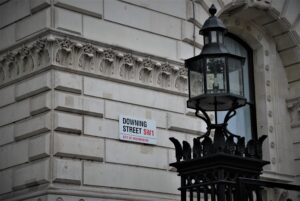
By Luke Foster, BSc Politics and International Relations at University of Bristol
Dominic Cummings has become a household name within a few short months after a controversial trip to Barnard Castle in County Durham. What would have been a wholesome family day out in pre-coronavirus times became headline news and drew attention to the power and the influence of political or ‘special’ advisors within the British government.
Headlines over the Barnard Castle scandal led the press to shed light on Cummings and his current government role. Cummings has made no secret of his desire for scorched- earth reform of the Civil Service whilst seemingly having a vice-like grip on Boris Johnson – all leading to questions of his impartiality and influence on government. Since the Barnard Castle debacle, it seems that Cummings’ position has only been bolstered, acting less as an impartial advisor and more as a worrying spectre over the integrity of British politics.
Political advisors, press secretaries, and directors of communications have always been criticised for their influence on the government of the day, but should we be concerned by Dominic Cummings’ influence?
Whatever your opinions on Dominic Cummings as a threat to democracy, it is clear that his role in the Johnson Government has been unprecedented. Since the start of the current Government, Cummings has had the position ‘akin to that of Vice-Premier’; defending the Barnard Castle scandal in the Rose Garden with little remorse helped solidify this VP role. The location of the Rose Garden alone was controversial in itself. Historically the garden has been reserved for meeting foreign dignitaries, resignation parties and press conferences with sitting US presidents. For Cummings to have a press conference in such an esteemed location only raised his profile. As Diamond puts it, ‘it is an important moment in the development of the British political system that a special adviser is able to hold their impromptu press conference in the garden of 10 Downing Street, taking questions from journalists while holding court in front of the world’s media’.
The Barnard Castle scandal is not the only factor that raises questions about the overreaching influence of Cummings. He has been a controversial figure in other areas, namely his scorched-earth approach to civil service reform. Cummings is known to have a feeling of disdain for Whitehall and the civil service elite, writing in his blog that he wanted applicants to the civil service to be ‘weirdos and misfits with odd skills’, entirely bypassing standard Whitehall application procedure. This has been followed by controversial department mergers, sackings, and appointments, all within the last year. Most controversially was the Foreign Office and DfID merger earlier this year, with the former absorbing the latter. With the timing of the merger in June 2020 in the midst of coronavirus pandemic, critics and insiders have argued that the timing of this move was all too deliberate; with civil servants briefed that the two departments would work closer together, these plans were dropped, leaving civil servants ‘in the dark’. It is argued that the coronavirus crisis granted Cummings a chance to trim down the civil service under the guise of efficiency and money-saving. Insiders in Whitehall and critics of the Prime Minister’s advisor have described the timing of the move as to ‘have been driven by Boris Johnson’s chief adviser Dominic Cummings’ and as ‘purely political’. It is concerning that an unelected official can publicly pronounce their plans to pick apart an impartial government body and do so with no accountability or scrutiny; this sets a dangerous precedent for the role of political advisors and their influence.
Despite the widespread fear of Cummings, with some seeing him as a looming spectre over the integrity of British politics and impartiality of the civil service, others argue that his rhetoric is old news and that he is not the first or last of his kind. As Diamond argues, the civil service critique has existed since the 60s, with officials branded as ‘generalists’ and continued into the 80s with Thatcher aiming to ‘deprivilege Whitehall’. Cummings will also face opposition from within the civil service itself. Further argued by Diamond, officials within the civil service are unlikely to take attacks ‘lying down’. This has been made especially apparent by the very vocal reaction from high ranking civil service personnel, with four top civil servants quitting in the last year.
Unelected and unaccountable political actors are not new either; throughout the 80s and 90s Labour’s equivalent to Cummings was Peter Mandelson, ‘Director of Communications’ – otherwise known as the ‘Prince of Darkness’. Unlike Cummings, Mandelson’s focus was away from the civil service and instead on the media’s control; Mandelson was particularly criticised for his intimidation of journalists and the press. In 1997 the political editor of the Daily Telegraph wrote an article titled, ‘Why I Will Not Be Intimidated’, in which he claimed that Mandelson intimidated journalists who wrote anything critical of Labour, threatening The Telegraph that they would lose ‘Labour stories’ if staff wrote reports he did not approve of. This role of ‘Director of Communications’ continued with Alastair Campbell at the helm under the Blair government, with similar behaviour to maintain power. Whilst Mandelson and Campbell had different approaches to Cummings, there is a similar underlying theme of unelected and unaccountable political actors threatening political impartiality, freedom of the press and the integrity of British politics and its democracy as a whole.
With just under a year into Dominic Cummings’ tenure, it is unclear whether he is a genuine threat to democracy. He is not the first or last agitator to the civil service and will face further hurdles in his attempts at reform; however, he has consistently broken protocol in just a few short months, setting dangerous new precedents and showing little regard for his actions.
Exclusive Offer: Get £100 off your Summer Internship Experience at Amplify Trading by clicking here or using our unique discount code at the checkout: MSAmplifySummer2021. Participants graduate from the course with a Diploma from the London Institute of Banking & Finance. For more information about the course, click here.

University of Bristol Politics Society
As the premier political society at UoB, the Politics Society is open to anyone who wants to become involved in the political sphere, meet like-minded people, enhance their career opportunities and deepen their political understanding.
